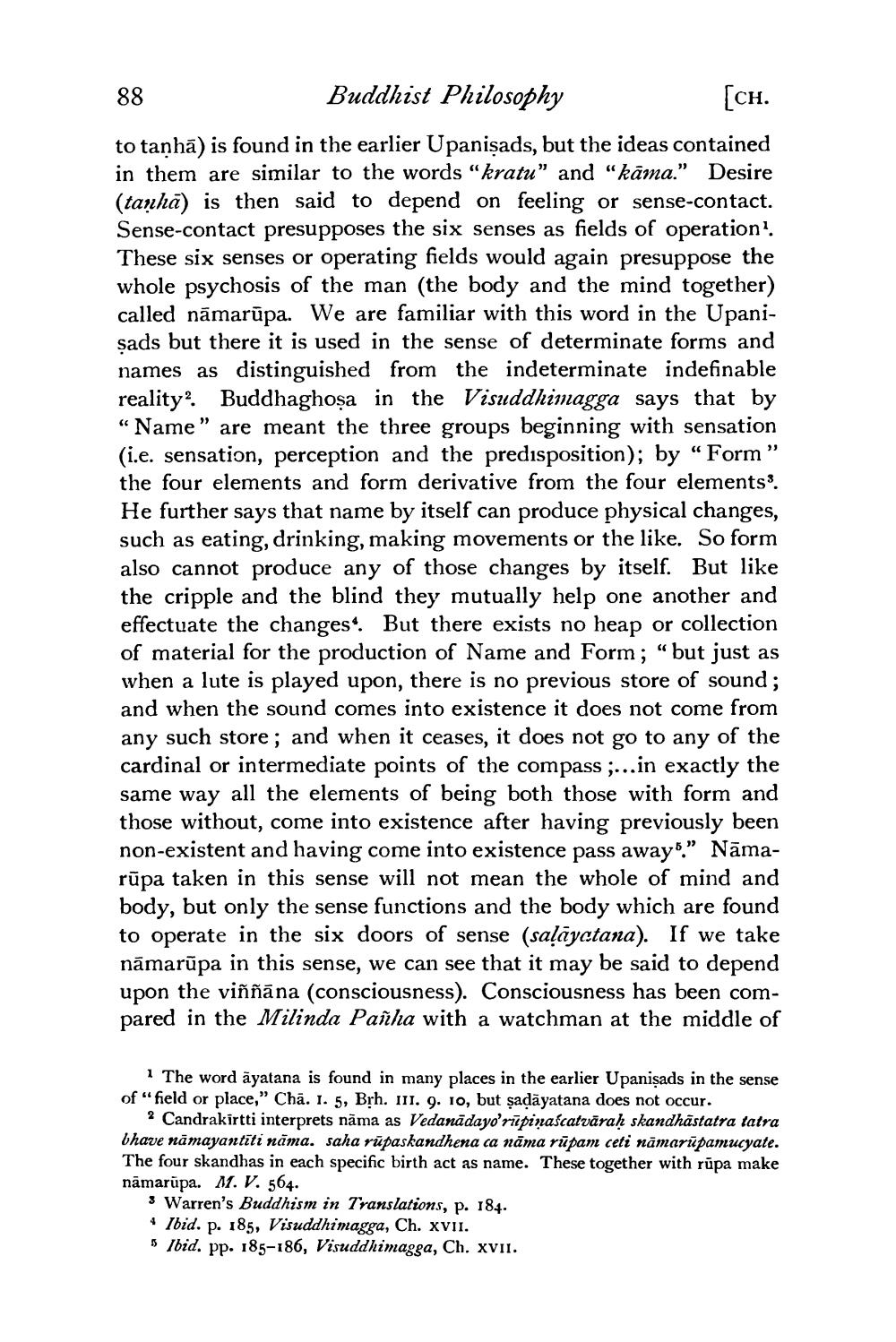________________
88 Buddhist Philosophy
[CH. to tanhā) is found in the earlier Upanisads, but the ideas contained in them are similar to the words "kratu" and "kāma." Desire (taṇhā) is then said to depend on feeling or sense-contact. Sense-contact presupposes the six senses as fields of operation'. These six senses or operating fields would again presuppose the whole psychosis of the man (the body and the mind together) called námarūpa. We are familiar with this word in the Upanisads but there it is used in the sense of determinate forms and names as distinguished from the indeterminate indefinable reality? Buddhaghosa in the Visuddhimagga says that by "Name" are meant the three groups beginning with sensation (i.e. sensation, perception and the predisposition); by "Form” the four elements and form derivative from the four elements. He further says that name by itself can produce physical changes, such as eating, drinking, making movements or the like. So form also cannot produce any of those changes by itself. But like the cripple and the blind they mutually help one another and effectuate the changes. But there exists no heap or collection of material for the production of Name and Form ; " but just as when a lute is played upon, there is no previous store of sound; and when the sound comes into existence it does not come from any such store; and when it ceases, it does not go to any of the cardinal or intermediate points of the compass;... in exactly the same way all the elements of being both those with form and those without, come into existence after having previously been non-existent and having come into existence pass away." Namarūpa taken in this sense will not mean the whole of mind and body, but only the sense functions and the body which are found to operate in the six doors of sense (salāyctana). If we take nāmarūpa in this sense, we can see that it may be said to depend upon the viññāna (consciousness). Consciousness has been compared in the Milinda Pañha with a watchman at the middle of
1 The word āyatana is found in many places in the earlier Upanisads in the sense of " field or place,” Chā. I. 5, Brh. III. 9. 10, but sadāyatana does not occur.
? Candrakirtti interprets nāma as Vedanādayo'rūpinascatvāraḥ skandhästatra tatra bhave nāmayantīti nāma. saha rūpaskandhena ca nāma rūpam ceti nāmarūpamucyate. The four skandhas in each specific birth act as name. These together with rūpa make nāmarūpa. 11. V. 564.
3 Warren's Buddhism in Translations, p. 184. * Ibid. p. 185, Visuddhimagga, Ch. xvii. 5 Ibid. pp. 185-186, Visuddhimagga, Ch. xvii.




